Ram Dass on Changing Our Metaphor for Dying
I sit with a lot of people who are dying these days because I am very interested in seeing whether we can develop a metaphor for dying that isn’t quite as horrendous as the one we have going in the West. Because our metaphor for dying comes out of philosophical materialism where a person that is dying is surrounded by people who are saying “you got to be up and around tomorrow. Don’t talk nonsense about death.” Then they walk out into the corridor and say “she won’t last the night.” I mean, just total hypocrisy.
While you can’t kill anybody you can’t prolong life. You only know whether or not life is to go on or not when you are yourself not afraid of death. Otherwise your fear totally distorts your perception all the time and you just panic when somebody is near death. Recently Wavy Gravy called me up, he is a very beautiful guy. Wavy said there was a boy who was dying here in San Francisco, and asked if I would visit him. And I said sure, so I went over and visited with him. He was about 23 years old and he was dying of Hodgkin’s disease. It was last August. We met at Tom Wolf’s house, and I went over to the kid and I said to him “I hear your going to die soon.” He says “yeah.” I said “you want to talk about it?” He says “ok.” So we started to talk about dying. After a while he went to light a cigarette and I noticed that his hand was shaking, he was very thin and weak. And I suddenly got totally paranoid and I felt like, “gee what right have I got to be coming onto to him? After all, he’s the one that’s dying.” So I said “hey if I am coming onto you, you know, just tell me to go away. I don’t have to do this.” And he says “well, being with you is getting me nervous, but the reason is because as death is approaching I’ve been looking for the strength to die and you are the first person I’ve met who doesn’t seem to be afraid of dying. And that’s just what I am looking for.”
And I feel like a child in this scene, and I’m just so excited by it that I am shaking. He was giving me the license – he was giving me the license to be with him. And we went on being together for quite a while and then he died later on. And what I recognize now – there’s a woman that just died in New York last year, her name was Debbie Matheson – she’s a beautiful woman. She was in her forties, she had two children and she was married to an author by the name of Peter Matheson. She was connected with the Zen Center in New York City, and when she was dying she was put in Mount Sinai Hospital to die. So the Zen students all came to her room every night and meditated and they turned the room into a Zen temple. And what happened was the first night they did this the doctors, the three young residents came to visit her room making their rounds, which usually consists of pushing open the door with that kind of hearty hail good fellow well-met type, you know, “how we doing today? Did we eat well today? Let’s look at that chart.” You know, that type of thing. They walked in and they faced all these beings sitting like this with candles and incense and the room was darkened and it freaked them out completely. And the second night they came in a little more gently, and by the third they would open the door very quietly and come in and stand in awe for a little while and then go away.
There, right in the middle of Mount Sinai they redefined a whole new metaphor, a metaphor that can be created through the strength of mind because you can create your universe anywhere you are. Once you recognize that, a hospital is merely a collectivity of minds who share a certain model about what it is all about. And the problem is that this society is one where the medicine men are knowledgeable, but not wise. And with the recognition of that, we are now seeking wisdom–not just knowledge–in our healers. And wisdom has in it compassion. And compassion understands about life and death.
A doctor is committed by the Hippocratic Oath to save life, but she or he does not have to be attached to that. They merely do that in the same way a bus driver drives a bus. It is the emotional attachment that they have to it that comes out of their own fear of death that is the problem in medicine at this moment in the West. And hopefully within a few years we will have an 800 number telephone number like you do for getting a motel reservation where if you are going to die in the next few months you can call that number and somebody will come and hang out with you and provide help for you in defining a new metaphor for how you’re going to die. And we’ll have some cassette tapes that you can play when you are in pain that will help you figure out what the pain is about, and how to use it to become more conscious. Because it’s obvious that the way to die is to learn how to live, and the answer to dying is to be present at the moment.
Ram Dass
Berkley Community Theater, March 7th, 1973





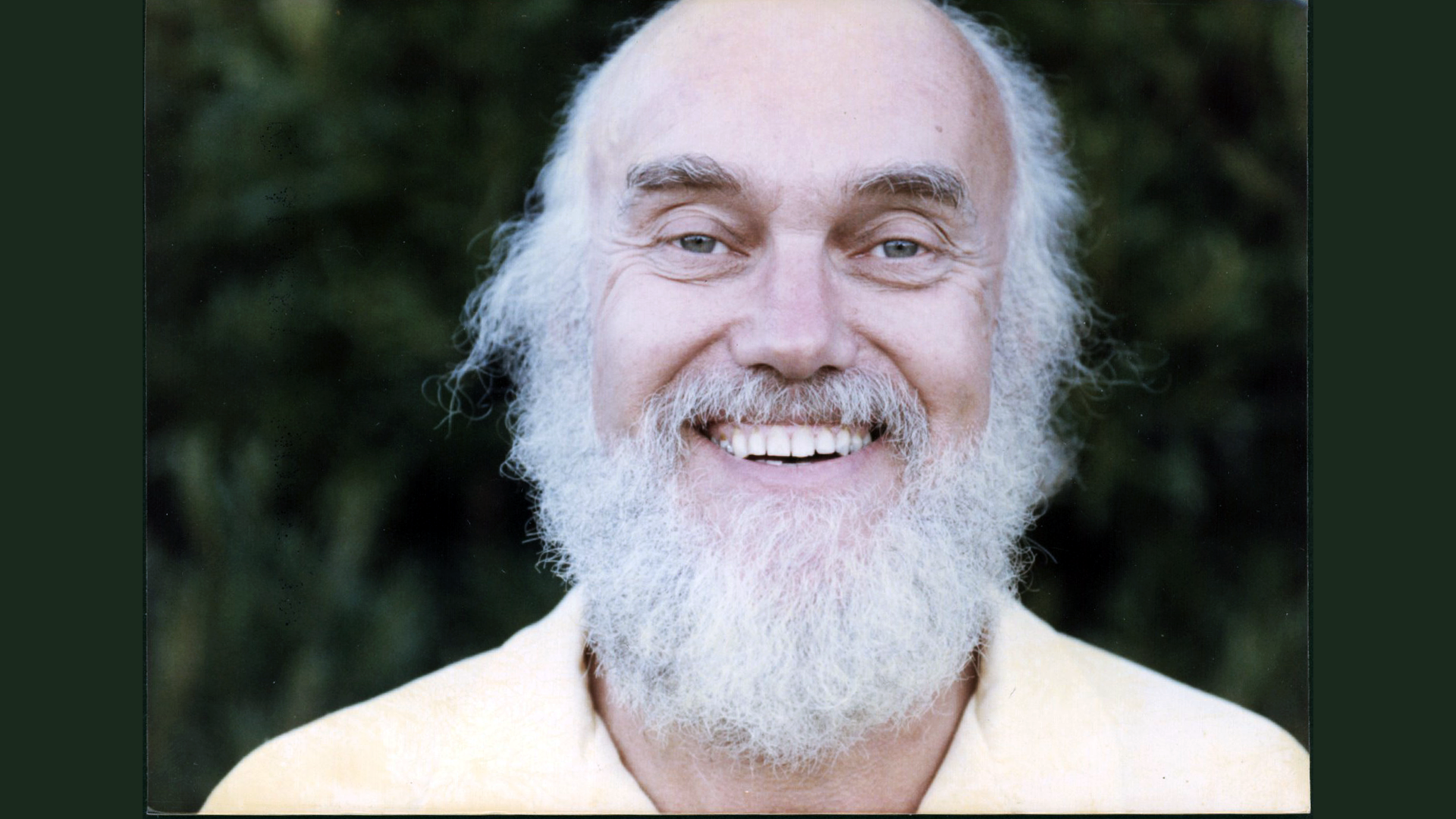
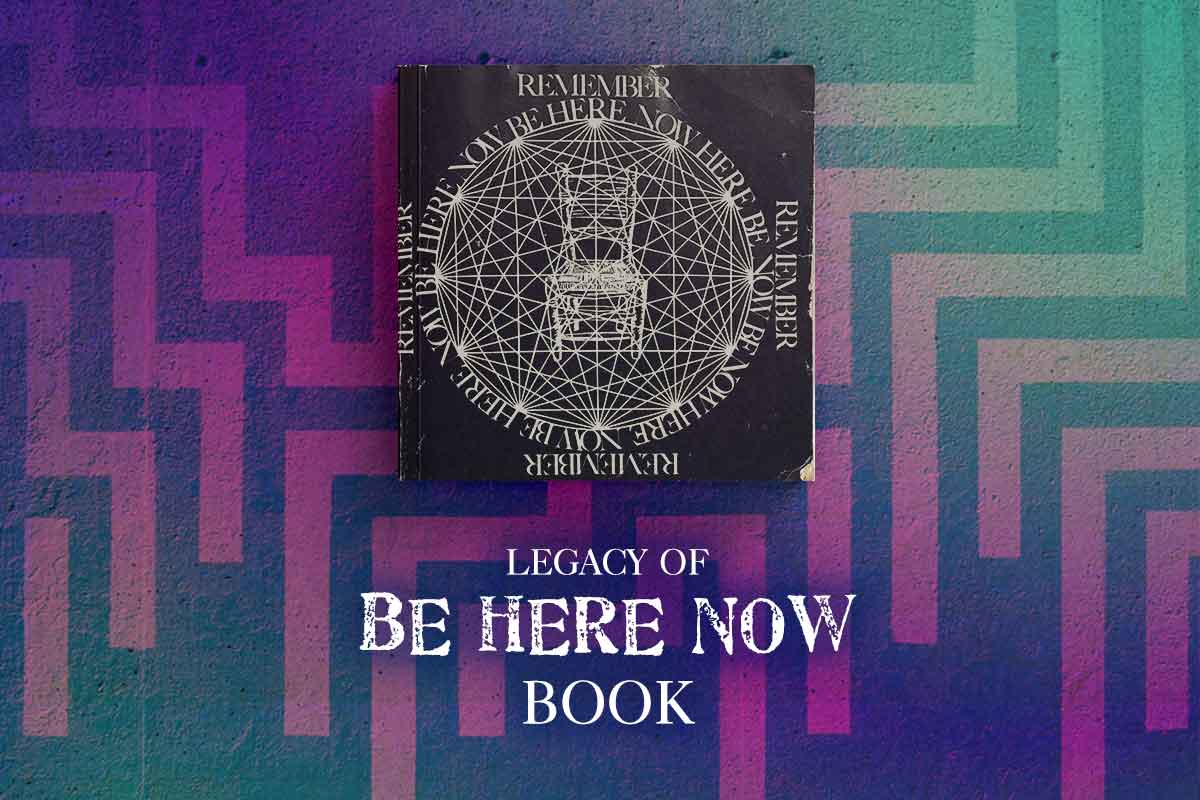
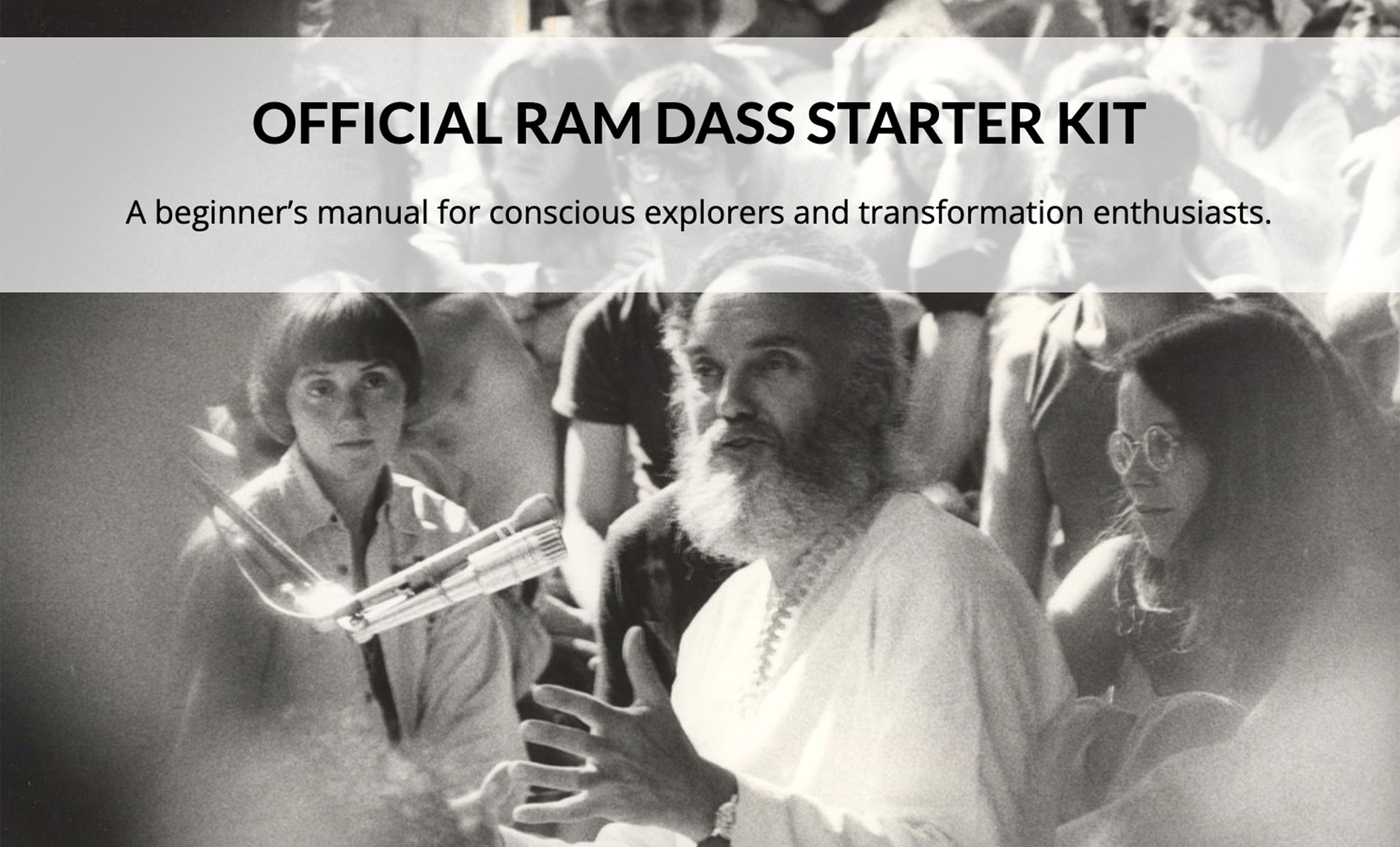
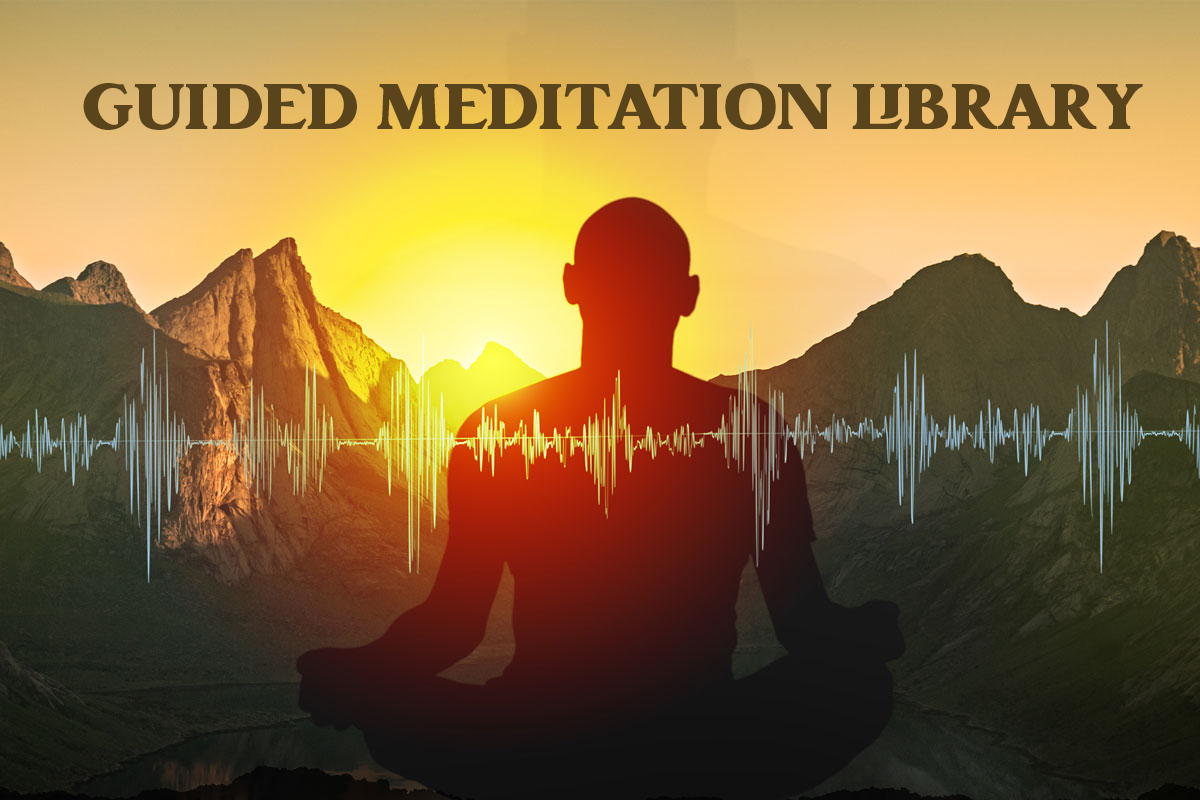
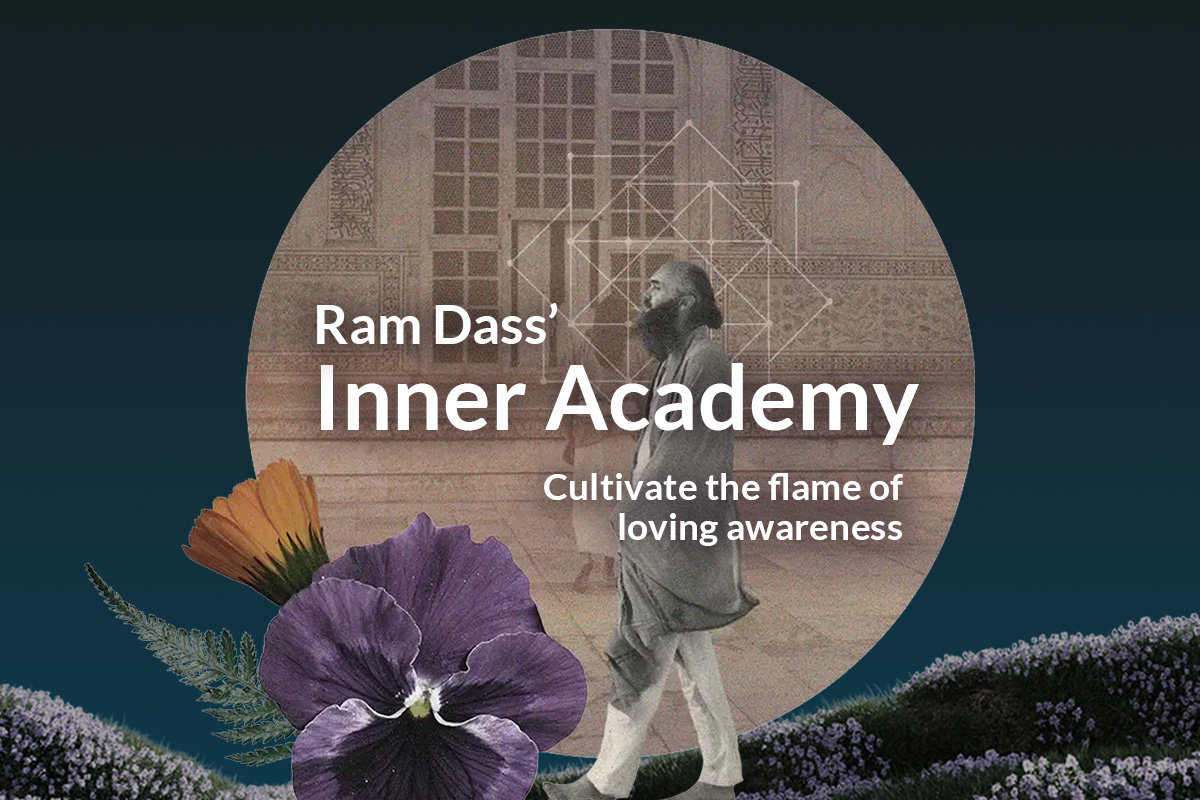
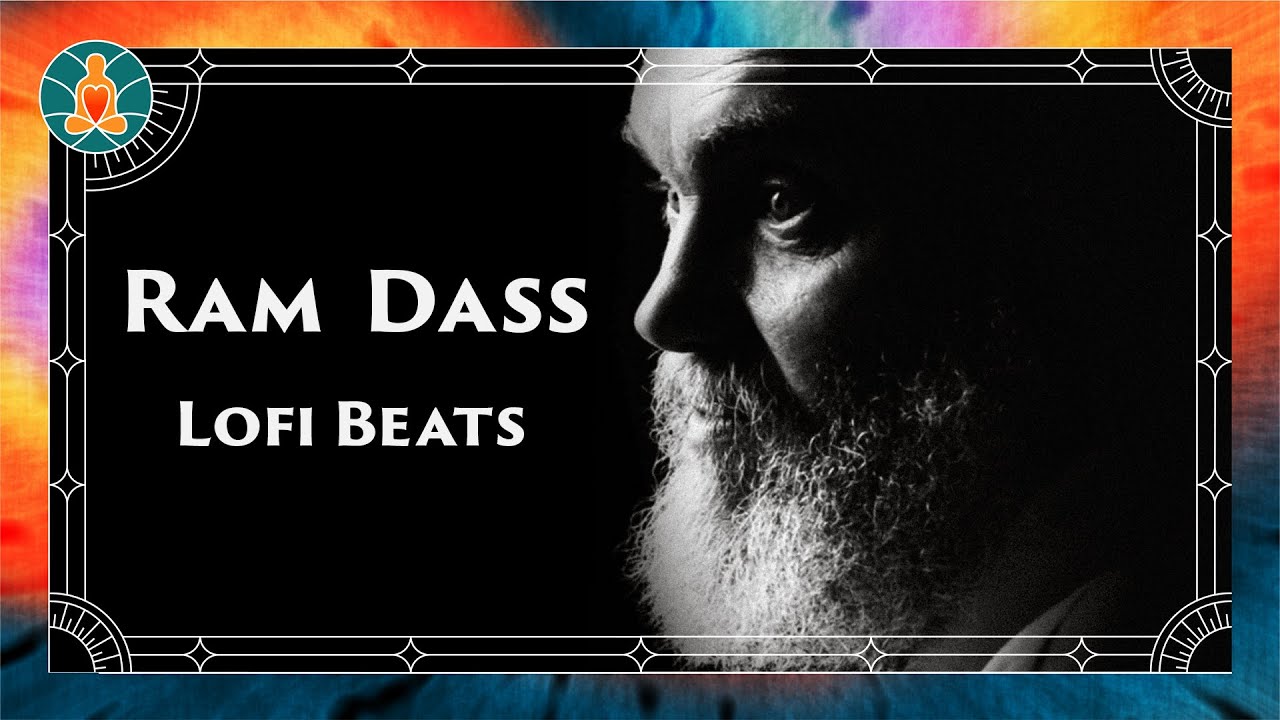
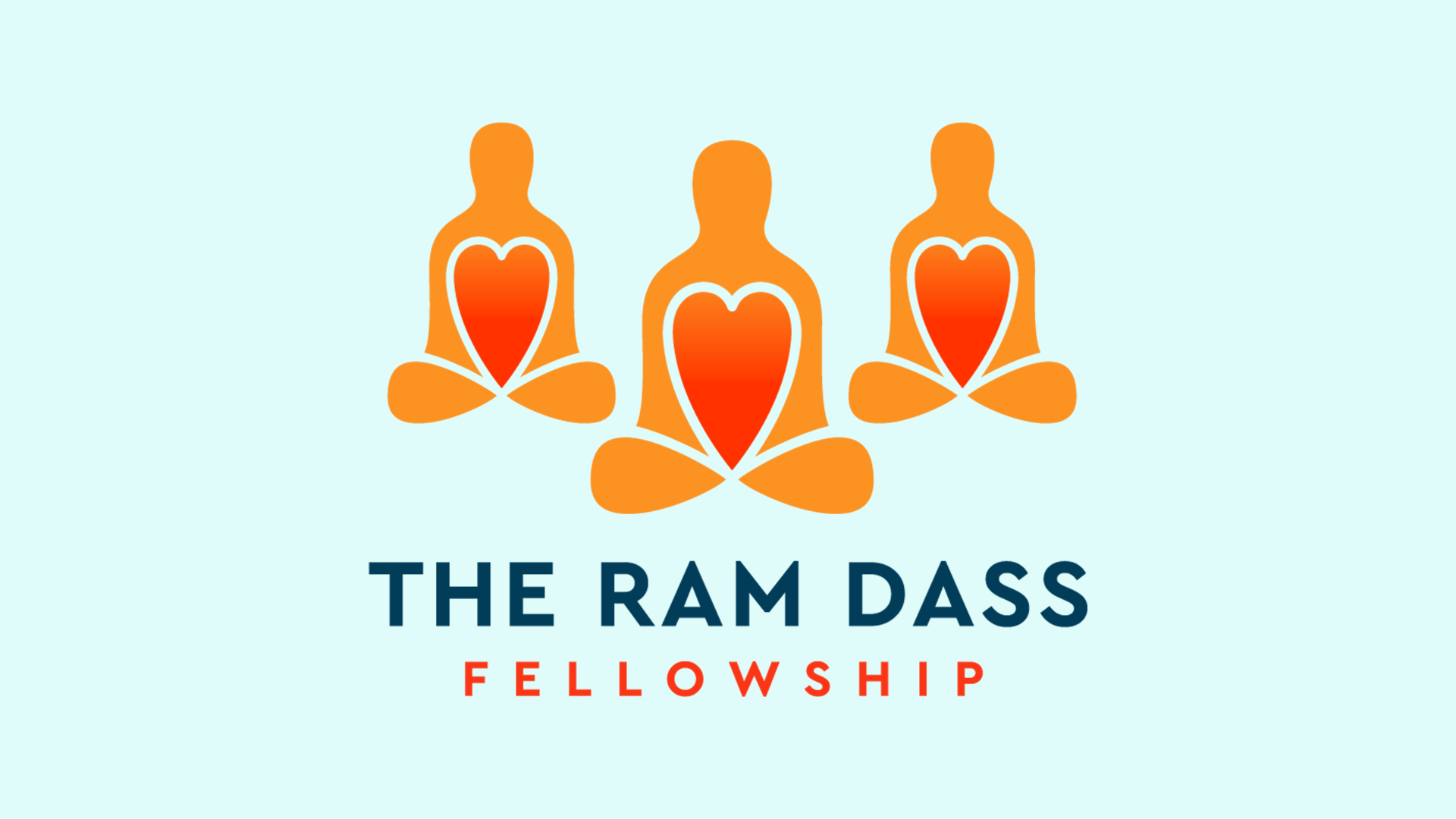
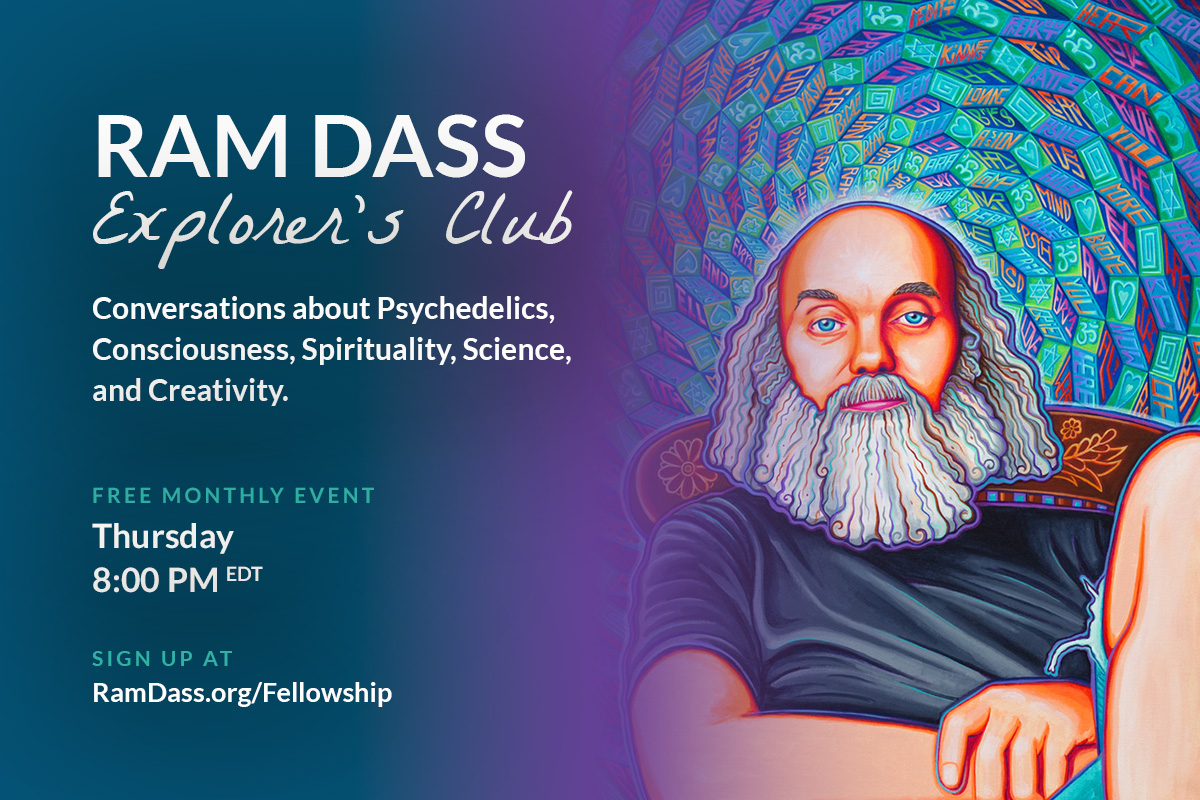

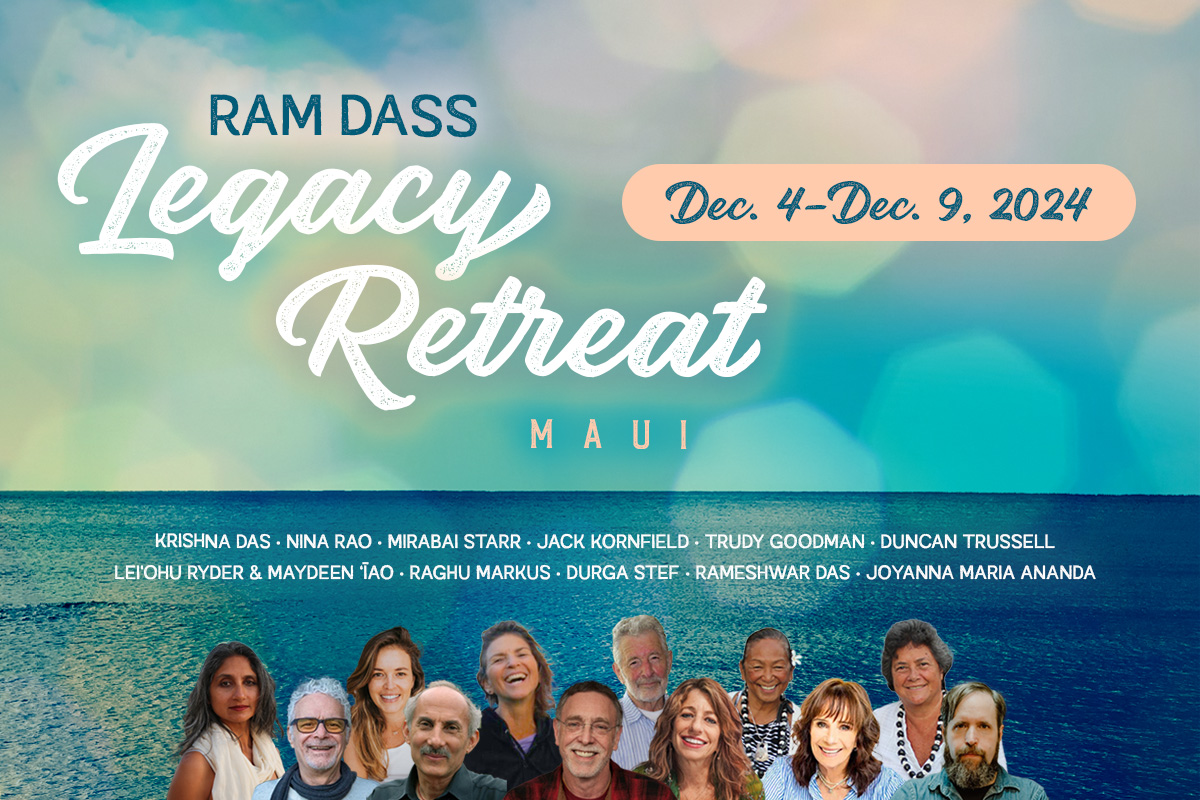

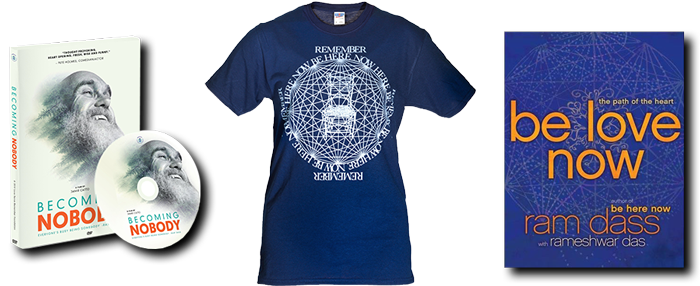

As I embark on this third act of life, I am mindful of the approaching death of this body I inhabit, and so very much wish to be involved in the Dying Into Love project.
Hi John,
Thank you for the comment. You can learn more about the Dying Into Love series at http://www.dyingintolove.com.
Namaste,
Rachael
I was with my daughter when she died at the end of 2010, and 12 years before, with my mother when she passed. My mother had a few realizations before she left. My daughter has been communicating with me about the ones she’s had since she died.
She talks about her transition, what she’s doing on the “other” side and what we can do to have happier lives while we’re still here. So, I’m not afraid of dying. Years ago, I even dreamed of when and how I would die. But, I’ll see eventually if that was right!
~How wonderful…working as a dispatcher to people across the country…I have heard the voices you speak of, there is a certain tone to that soul you are speaking to…they can tell if you are fully present and connected, they sense right away if you are genuine or not. Once they feel they are being not only heard but felt, they will open their hearts and welcome you in to their world…I am so blessed to be able to visit hundreds of people on a daily basis…I get more than I could ever give. I would encourage a human voice rather than a taped voice…as that is as “present as one can be”….Much <3<3<3~Heidi~
Heidi,
With which organization do you work? It must be immensely rewarding work.
John
~Hi John,
So sorry for the delay in response…I work for a company that assists people/families in managing life skills, performing daily tasks, sending out medical professionals, EMS…offering the opportunity to stay at home and live independently. It is very rewarding and as I said in my previous e-mail, I get much more than I give…
Wishing you well and sending much <3<3<3~
Hi John,
So sorry for the delay in response…I work for a company that assists people/families in managing life skills, performing daily tasks, sending out medical professionals, EMS…offering the opportunity to stay at home and live independently. It is very rewarding and as I said in my previous e-mail, I get much more than I give…
“How fascinating
the idea of death
can be.
To bad, though,
because it just
isn’t true “.
– Hafiz-
Here’s another beautiful approach that I have been taught in my shamanic training…
http://www.dyingconsciously.org.
Blessings,
Ed
Very interesting article….the beginning of “work” I would like to do as I have worked as an Echo Tech (taking pictures of human hearts with ultrasound) for 30 years and have very attached to “sick” people “making it”. Many times I have found myself outraged when someone dies, especially someone under 40 . I would like to be “OK” with dying and have recently found some comfort in a statement Ram Dass made on one of his audio CDs, actually not verbatim but he said something like, A person does not drop their body a day before they or suppose or a day after. It is all perfect, the way it is suppose to be.
I used to listen to Ram Dass maybe 20 years ago and am so happy to refind his teachings on audio and his website.
Thank you Ram Dass for all that you do 🙂
it is sad that for many people dying who have been dominated by their fears during living time, that for them their only reality will be the accompaniment of fears and expectations of what is to come after death, having been culturally conditioned to beliefs in eternal pain and suffering. The image of redemption or freedom from suffering may not be present. Then there are those who, not believing in soul or eternity, will leave this body alone, detached, resolute in their belief that death will bring the end of suffering and pain. Others, on the other hand, have visions of heavenly bliss and comfort and freedom from pain and suffering accompanied by loved ones and they greet death, not as a sentence but as a liberation and a surrender. The ability to have control over emotions and mind to be able to overcome pain while dying is achievable with soulful presence and faith in the soul’s eternal being. Some say that we die as we have lived- so to die peacefully we have to live peacefully. Let’s make peace our first priority and use love as our means of achieving this end. Blessings in love and light to all. Namaste.
More and more people are becoming familiar and comfortable around the subject of death. Really, its not even ‘death’, its transition.
As a nurse I studied Elizabeth Kubler-Ross’ work On Death and Dying. Whe was really a pioneer in the field at about the same time as this story happened. As a student nurse I felt very strongly about her work and had some wonderful eperiences with those who were dying. It is an honor to go down that path with someone. Here is something I wrote about a patient I had. It was such a moving experience. So beautiful, it has stayed with me for almost 40 years. http://einsteinsgifts.com/2013/12/23/a-story-of-love/
I still have my original copy of “Be Here Now” and I am very glad I have reconnected with Ram Dass. Lately, my ego was really trying to control things and after reading half of “Polishing the Mirror”, I see the humor in it and I have already adjusted my perspective. It’s wonderful to be in tune with the inner guru and with heart truth.
Wonderful
post. A new metaphor for dying would be great. In addition, how about
striving to understand the reality of death? Knowing what questions to
ask might be a good start.
Great idea, Frank. I’m new here and I hope you don’t mind my replying. Since it is problematic to answer questions about what comes next, etc., with any authenticity, my sense is that we should ask questions such as “What do I feel is left undone?” “What relationships would I like to see healed?” “What dreams have I realized and fulfilled and what is left unresolved?” “What do I wish for those people in my life that I leave behind?” These are the kinds of questions I think we should embrace with people who are actively dying when they are at a point of acceptance to consider them. What do you think? If you were actively dying right now, what questions might you have?
Hello Mark. Of course I don’t object to your reply. That’s what its all about! (Not the hokey-pokey!) I don’t believe questions about the nature of our existence, life, death are really meant to be answered as in answered with finality. But to know what the questions are is helpful on one’s journey through life, I feel. Such as — where do we come from? What is consciousness? Inspiration? Revelation? Death? I don’t ask what is left undone (that would overwhelm me. I do ask: what should I do now? (its still pretty daunting) Re relationships — yes I agree. But same idea re: dreams as with what is left undone. I am 70 but don’t have a bucket list — I find them nearly obscene. As I get closer to the end of my life I like to think as my mentor Ralph Waldo Emerson wrote “For the soul is true to itself, and the man in whom it is shed abroad cannot wander from the present, which is infinite, to a future which would be finite.” And as you write Emerson wrote in a similar way that God has no answers to to questions about our future state. “These questions which we lust to ask about the future are a confession of sin. God has no answer for them.” So I think I will live my life moment to moment, doing what I can for family, friends, community. I’m an artistic photographer and find much satisfaction in my practice of it. As to my questions while dying — I hope I will look forward to my trip with the ferry man. My favorite notion about that is from Mr. Emerson’s friend, Henry David Thoreau — on his death bed when asked if he had made peace with with his creator he said that he had never quarreled with him, when asked about his ideas of the next life, he replied — “one world at a time.”
Thank you, Frank. I appreciate the way you approach life with peace and surety. I also appreciate your sense that to ask what is undone is overwhelming. I’ve witnessed not only dying people but many others who experience such great anxiety from always trying to resolve everything that is left undone. I used to be that way and still consider myself “in recovery.” Living from right here and right now, I remind myself that up to this now moment, everything got done that I was going to get done and from this now moment I have unlimited possibilities of what the Universe might do with me. I follow my inner compass for a sense of living into the next now moment and trust that I am where I need to be when I need to be there doing what I need to be doing. Seems like that is a lifelong practice.
Yes a life long, every day/moment practice. Being excited about the future even as we age, not looking back and wishing we were in a time gone by, not being full of anxiety about the uncertain future but seeing that life is a thrilling adventure — an adventure that requires no special gear or tickets to exotic places – these are some of the notions that I find helpful to keep in mind. I just recently reread Emerson’s The Over Soul and came across his statement that the present is infinite while the future is finite. Reading it for the third time it finally hit home. Reminds me of Joseph Campbell’s remark that eternity has nothing to do with time.
wow, Mark; that was just perfectly stated.
Since this piece was written, we have seen the hospice movement become a standard part of our society. Even doctors are on the same page that at some point the prayers for healing and recovery change to that of a different kind healing and that the best practice is to simply keep the dying person comfortable. My work for the past year as a hospice chaplain has been to help people experience a “good death” such as Ram Dass describes here. Helping a person and their family members come to terms as fully as possible so that there is no/little attachment to unresolved issues. There is a point in the conversation with a dying person (usually) when they are evidently making a transition and are partly in this reality and partly in the next. Quite often the dying person is at a point of acceptance, wanting to talk about where they’re going and what they’re leaving behind, but their family members are not. Even when asked about funeral arrangements, family members recoil and comment that it just isn’t necessary yet. Hospice is helping us make headway toward embracing death as a stage of life, but we have a long way to go. I remember Ram Dass writing at some point that anything to which we cling that is based in time and space causes suffering. Helping a person release attachment to things, relationships … anything in this life … can help them to transcend suffering on their way into whatever is next.
Mark, It sounds like the real education is often with the family members. Ram Dass is totally right, as a society we deal poorly with death, and we badly need new ways of being with death as it nears. The person who is approaching death is on board with it, for the most part. I know before he died, that my Dad was crossing back and forth in his dreams, experiencing the freedom and joy of his new place. It really excited him. When he died (in his own home) a great storm came up, then left a double rainbow stretched across the backyard. Yes, it felt like his thank you – to all of us.
Merry,
I’m glad you shared this. I am doing a presentation next month on death and bereavement for a group of social workers. With your permission, I would like to include your story about the rainbow and anything else you would like to include. That is such a beautiful metaphor for death, like a storm followed by a rainbow. It feels to me as if the entire universe swept him up. I got goosebumps as I read this.
This is a work I would love to be involved in. I started on a degree in Music Therapy, but a semester-long internship as a volunteer with a hospice group where I got to bring music one-on-one to the dying was incredible. The music allowed us to get past all the “shoulds” and just “be”. It also allowed working through end-of-life issues for the person dying. The hospital got bought by a bigger one, though, and they rearranged the hospice volunteer program so I no longer had a venue. There is so much depth and peace that is possible in the dying process. I think what you propose is necessary and oh, so very needed.
Written with the compassion you speak of. I am so glad to hear that the metaphor is changing. I am currently a home companion for two elderly folk and looking for an opening to talk about end of life stuff. I have never done this type of work before so I wait gently. thanks for the encouragement.
Living your Dying is how Mits Aoki described it. Same same as living just not getting freaked out by the process. Simply living, simply leaving the material plane. The larger part of us all is immaterial anyway. We rejoin the pool of ancestors, re-emerging into pure positive expression.
There’s much more on Death and Dying in http://www.dyingintolove.com/
I’ve watched many, many people both human and non-human go through the dying process. The most profound was watching my mother. She was sadly a very mentally ill and a very miserable person, so her death was NOT easy or pleasant. She committed a form of suicide by neglecting herself to death. It was a horrifying and deeply traumatizing experience to watch for the rest of us.
That experience spurred me into really sitting down and studying books and articles on death written by spiritual masters, looking into Near Death Experiences, walking through and meditating in graveyards, listening to the dying, and even looking up pictures of corpses in various states of decay. I meditated deeply. I won’t lie — it was really pretty terrifying and haunting at times, but “Going to the places that scare you” has been the best advice I’ve ever taken.
Over and over, I have seen consistency in reports from all over the world from folks who work intimately with the dying, the dead, and from people who have even BEEN dead: Death is not bad. What’s on the other side is Home…the very thing we look for all our lives here on Earth and try to recreate constantly in meditation and spiritual experiences. We’re never actually apart from it, but the condition of being here on Earth is a degree of mental separation.
I now understand that death is actually a joyful event. Dying can be very painful and scary of course, but honestly, if you think about it, so is being born. A newborn baby’s cry is one of confusion, terror, and pain, but it’s still ultimately a joyful event. That’s how life works. Getting or leaving a physical body can be a very tough process. It doesn’t mean it’s bad, evil, or wrong.
And how we relate to that is entirely a choice. So I work daily at practicing the skills I will need in the future when it’s my time and trying to live every day as if it’s my last. I know that sounds morbid, but when you get to the point of not having much fear of death or dying, that actually is an incredibly rich and fulfilling way to live.
The metaphor I use for death is just “going Home.” One of my fur-family needs help this afternoon in his transition. So I’ll be taking him to the vet soon for help in that. He’s old and sick, but has had a great life, so it’s his time. This doesn’t bother me. I’m still grieving of course…but I am just observing the pain within me. Grief is just my ego believing it’s getting left behind and “losing” him. My Atman is still in contact with Home, and everyone I’ve ever loved that’s already Gone Home — so it knows that my darling little one isn’t going anywhere he’s not at already this very moment.
I was reading a blog describing the degeneration and death of the author’s loved one from the same disorder as mine. After a slow inexorable decline to being bedridden in a nursing home; blind and aphasic with severe contractures and multiple UTI’s from his Foley catheter (it’d adhere to his urethra requiring it to be torn away to be replaced, like repeatedly passing kidney stones the size of golf balls), his bowel finally became paralyzed and peristalsis ceased. He began regurgitating and aspirating feces. Yeah; at the end, he drowned in his own shit.
For some of us, dying’s no metaphor, and the American medical industry’s myopic focus on prolonging our suffering for as long as possible at minimal cost and maximized profit scares the hell out of me. It’s that widows are four times more likely to live in poverty than married women. 49% of foreclosures and 62% of bankruptcies are directly caused by medical bills.
Ours is not only a Capitalistic society, but a sadistic one that revels in the suffering of others; not only do we refuse to pay for services to the homeless, we criminalize wearing blankets. Euthanasia and assisted suicide is criminalized not only because it deprives corporate interests of profit, it deprives a Calvinistic society of what Santayana described as a fierce pleasure in the existence of misery. If someone wants to choose to die on their own terms, they’re limited to secretly cobbling together something off the ‘Net while they still have the mobility, dexterity, and strength to do so, perhaps quite a bit sooner than they might choose otherwise, and then forced to die alone so as not to expose their loved ones to the draconian prosecution of a vindictive police state which imprisons a greater percentage of it’s citizens than any other nation on earth. Working with the 5 Remembrances and releasing our attachments and aversions is hard enough. The logistics of dying in America makes it so much worse.
Thought-provoking, but things have changed a lot since 1973, including the hospice movement. In my experience with my dying mother there was no attempt to prolong her life as she was clearly on her way out. I think the scene in the hospital is beautiful and illustrates why so many people want to die at home rather than in a sterile hospital environment. It is emotionally understandable to want to prolong life among loved ones, particularly young people who are dying. But, I agree, death is unavoidable and not everyone dies of old age. We have a chance of taking part in a profound experience – witnessing death – if we just allow it to happen and keep our hearts and minds open.
How awesome it is to read these words written 50 years ago, and know that we DO have the workings in place now to have people join us in our dying. Conscious dying is in the consciousness of the living, now, and is become more so.
Thinking of the last line in this writing, I reflect upon how I am doing some thing similar through the back door. I work on teaching people how to dive as a way to engage in life. It’s just another way in. That’s all. Just a different door that opens from all directions.
Should have read *I am teaching how to die, not how to dive.